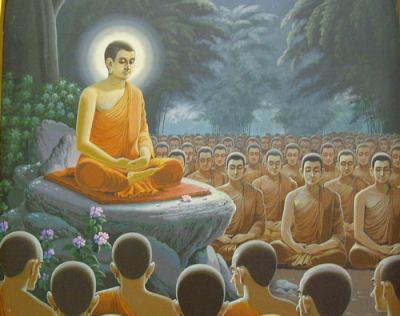Passive Voice
หลักการใช้
ประโยค (Sentence) คือข้อความที่เอ่ยมาแล้วเข้าใจได้กระจ่างชัดว่า ประธาน แสดง กริยา อะไร เมื่อ
ใด ถ้ากริยานั้นต้องมีกรรม (Transitive Verb) ก็ต้องมีกรรมระบุในประโยคด้วย เช่น
- เขา เดินฃ
He walked
เขา เป็นประธาน (Subject)
เดิน เป็นกริยาไม่ต้องการกรรม (Intransitive Verb) เป็นอดีตกาล (Past tense)
- เรา กิน มันฝรั่ง
We eat potatoes
เรา เป็นประธาน (Subject)
กิน เป็นกริยาต้องมีกรรม (Transitive Verb) เป็นปัจจุบันกาล (Present Tense)
ทั้ง 2 ประโยคข้างต้นนี้ มีประธานเป็นผู้กระทำทั้งสิ้น (แต่จะอยู่ในรูป tense อย่างใด ก็สุดแท้แต่เวลาที่
ต้องการบ่งชี้) เราเรียกโครงสร้างของประโยคชนิดนี้ว่า กรรตุวาจก (Active Voice) ลองสังเกต
ประโยคต่อไปนี้ดูบ้าง
- Mangoes are eaten
มะม่วง ถูกกิน
มะม่วง เป็นประธาน (Subject)
ถูกกิน เป็นกริยา (Present Tense)
ประธานของประโยคคือ Apples ไม่ได้ทำกริยา กิน แต่ในทางตรงกันข้าม ประธานกลับเป็นฝ่ายถูกกระทำ
- The letter was read yesterday
จดหมาย ถูกอ่าน เมื่อวานนี้
จดหมาย เป็นประธาน (Subject)
ถูกอ่าน เป็นกริยา (Past Tense)
ในทำนองเดียวกันกับประโยคแรก จดหมายซึ่งเป็นประธานของประโยคไม่ได้ เป็นผู้อ่าน แต่กลับเป็นสิ่ง
ที่ถูกอ่านโดยประธาน ทั้ง 2 ประโยคหลังนี้ มีประธานเป็นผู้ถูกกระทำ โครงสร้างเช่นนี้เรียกว่า






